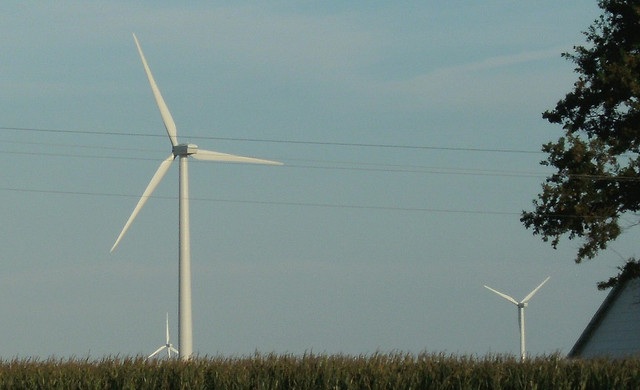I have not covered myself in glory, in tipping AIM listed Symphony Environmental (LSE:SYM) at 10.25p in may 2010 as the shares are 65% down at 3.625p. Half calendar year numbers yesterday went down badly. But there are two reasons why this stock is potentially very cheap and should, in due course, race back well past 10.25p and beyond and this is why.

There are essentially two parts to this business. The first part owns the patents on chemical products that can be added to plastic products to give them certain new properties. Distributors across the globe order supplies of these products which Symphony gets produced elsewhere so it has no capex needs it is simply a matter of getting distributors and them getting orders. In a few years the lead formulation may be an anti-microbial product, right now it is d2W which when added to plastic makes it bio-degradable. Forget the plastic bag taxes, this is the way to deal with the menace of waste plastic – make it disappear.
Part two of Symphony is a blue sky operation which has developed a kit to break down waste tyres into rubber pellet ( can be used to make new tyres or as a fuel) and metal (for recycling). The development of the T-Rec tyre machine has cost Symphony a fair old whack in recent years so depressing earnings. R&D is now over and I expect it to be spun off as a separate company backed by private equity within months. That spin off will a) raise material cash for Symphony, b) leave T-Rec fully funded and c) leave it with a stake in T-Rec which will probably be worth more than Symphony’s current market cap ( £4.62 million).
Back to the core business.
The first half numbers were not impressive. Symphony is always second half weighted but if you read the headline RNS numbers but do not put this in context I can understand why you were not rushing to place a buy order.
Revenues fell from £3.89 million to £2.12 million. Gross profits were £1.17 million (down from £2.18 million) with a gross margin of 55% (56%). The pre-tax loss was £680,000 ( versus a profit of £280,000) However a focus on converting trade receivables into cash meant that the company generated cash and ended the period with a tiny net cash balance.
Before you panic, I had a long chat with CEO Michael Laurier and finance director Ian Bristow yesterday. The level of trade receivables is still far too high but a squeeze since June has helped and the net cash position is building steadily. But there is a long way to go.
So, given that the number of distributors increased (70 from 67 – with four more signed since the period end) why the slowdown? Well partly that is down to new accounting policies designed to reduce trade debtors/increase cash generation. There was slower than expected pick up of business with new Chinese distributors (not a surprise to me) but the key issue here is the new policy of keeping stocks with suppliers at lower levels in order to reduce working capital needs. Will that unwind? Yes. I quote Michael Laurier:
“Stock levels throughout the distribution network were low at the end of June as a result of the above changes, and the minimum reorder levels in several of our major markets have been reached since the period end. Sales activity is currently running at a much higher level than in the first half of the year.”
So what I am I expecting in the way of numbers? It is hard to say for calendar 2012 but there will be a pre-tax profit. Given the high gross margin and operational gearing an exact forecast is just impossible. Even Michael and Ian could not tell you. But let’s give a range of £200,000- £750,000. Next year is more interesting as legislative change is driving d2w sales.
Mad countries such as the UK think that putting a tax on plastic bags will cut usage. It will. But such a tax is regressive and expensive to enforce. Sensible countries realise that the answer to plastic litter is to make all plastic biodegradable by law. And that trend is moving, ever more rapidly, in Symphony’s favour. For next year broker Seymour Pierce forecasts sales of £10.7 million and pre-tax profits of £1.7 million. So post tax that would be around £1.25 million putting Symphony (a company with net cash) on a PE of less than 4. For a growth stock that is far too low.
So what is Symphony worth? Well you get two bites at the cherry. Forget tyres. If Symphony delivers on its numbers a low teens PE would see the shares trading at 10p plus and appreciating rapidly as earnings move ahead sharply in 2014 and 2015. If the company spins off T-Rec and can show what it is worth that could well add another 5-8p to the valuation. I treat that as a bonus. The core business alone is enough to justify buying this stock.


 Hot Features
Hot Features













I am a little confused at your mention of the T-Rec tyre machine. This is the brand name associated with SEDA of the USA, a company that supplies equipment to vehicle breakers. This tool merely separates tyre from wheel rim.
Great post, you have gained a new reader. Cheers!